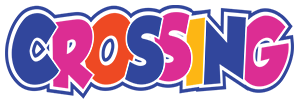Introduction
In the dynamic and rapidly evolving digital gambling ecosystem, understanding the relative positioning of local gambling market shares vis-à-vis global competitors is paramount for industry analysts. Such comparative analysis provides critical insights into market penetration, technological adoption, regulatory impacts, and consumer behavior trends that shape the competitive landscape. It enables stakeholders to strategize effectively, anticipate shifts, and pinpoint growth opportunities amid intensifying global competition.
Understanding Market Share Dynamics in Online Gambling
Local gambling markets are influenced by a confluence of factors, including regulatory frameworks, cultural preferences, and the level of technological infrastructure. When stacked against global giants, these markets often exhibit unique growth patterns and resilience attributes worth detailed examination. Key performance indicators such as Gross Gaming Revenue (GGR), active user base, average revenue per user (ARPU), and acquisition costs serve as quantitative benchmarks in this comparative framework.
Regulatory Influence and Compliance Complexity
Regulatory environments can either serve as catalysts or inhibitors for market growth. Local jurisdictions often enforce stringent regulatory regimes impacting licensing, taxation, and responsible gambling protocols, which diverge significantly from global standards. These disparities affect local operators’ ability to scale and integrate advanced technologies, such as AI-driven personalization and blockchain-based transactions, placing them at a competitive crossroads relative to global operators who often benefit from more permissive or harmonized regulations.
Technological Adoption and Infrastructure
The disparity in technological infrastructure between local and global operators is a defining element in market share competition. Global operators frequently leverage cutting-edge platforms offering seamless omnichannel experiences, real-time analytics, and scalable cloud architectures, culminating in superior customer engagement and retention. Local platforms may lag due to limited capital for R&D or slower digital transformation cycles. However, localized operators often compensate by rapidly tailoring offerings to regional preferences and payment systems.
Consumer Behavior and Market Penetration Strategies
Global gambling entities capitalize on expansive marketing budgets and cross-border data analytics to deploy hyper-targeted acquisition strategies. In contrast, local operators benefit from deeper cultural insights and customer intimacy, allowing for personalized and community-anchored campaigns. Comparative analysis reveals how consumer loyalty indices and churn rates differ between local markets and the global sphere, guiding optimization of user acquisition funnels and lifecycle management.
Case Study: Integration of Innovative Betting Platforms
One illustrative example is the integration of the platform rt bets, which exemplifies how innovative local platforms incorporate real-time betting technology within a competitive market. Such integration enhances user engagement through live event synchronization and advanced odds algorithms, positioning the platform competitively against global operators. This highlights the importance of technological innovation as a differentiator in market share battles.
Conclusion and Strategic Recommendations
A rigorous comparative analysis of local versus global gambling market shares elucidates critical competitive differentiators rooted in regulatory agility, technological adoption, and consumer engagement strategies. For industry analysts, focusing on granular data sets that capture these dimensions is essential to construct accurate market models and forecasts.
Recommendations include prioritizing investment in scalable technology stacks, fostering compliance frameworks that balance innovation and regulation, and enhancing data-driven personalization to improve customer lifetime value. Furthermore, collaborations between local operators and global technology providers can catalyze knowledge transfer and accelerate market share growth. Ultimately, a nuanced understanding of these comparative dynamics empowers stakeholders to sustain competitive advantage in a converging global gambling marketplace.






